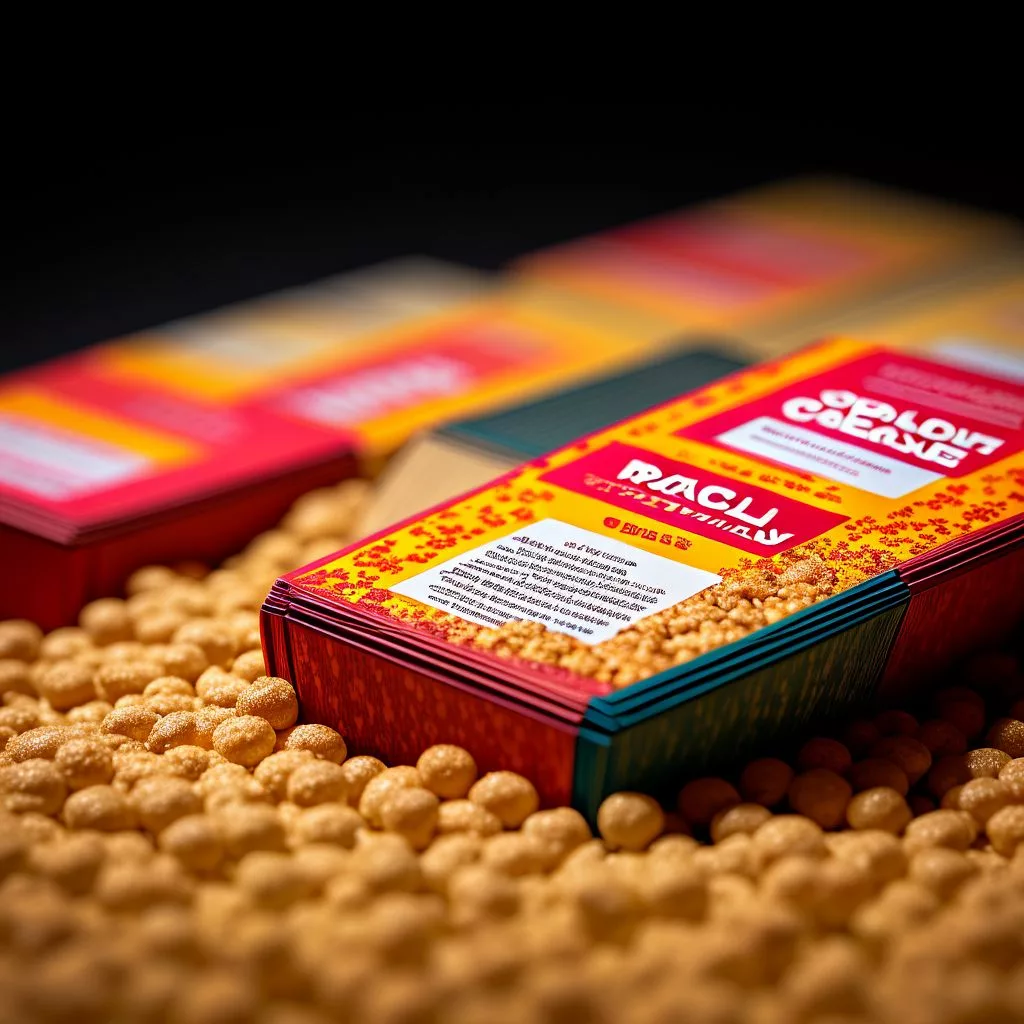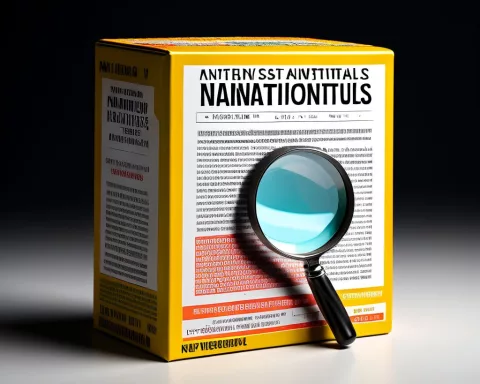Supermarkets like Shoprite, Checkers, Usave, and OK Foods are taking big steps to keep customers safe and happy. They are recalling cereal products because some labels had wrong nutritional information. Shoppers can return these cereals for a full refund, even if the box is opened, showing the stores really care about what they sell. This move highlights how important it is for businesses to be honest and keep customers informed about what they eat. It’s all about building trust and ensuring everyone can make safe choices!
What actions are supermarkets taking to ensure consumer safety and trust?
Supermarkets like Shoprite, Checkers, Usave, and OK Foods are voluntarily recalling cereal products due to inaccurate nutritional labeling from Heartland Foods. Customers can return any affected products for a full refund, highlighting the retailers’ commitment to transparency and consumer safety.
A Bold Move for Transparency
In a noteworthy demonstration of corporate accountability, major supermarket chains including Shoprite, Checkers, Usave, and OK Foods have embarked on a significant initiative. They have voluntarily recalled all cereal products recently produced by Heartland Foods. This decisive action highlights the critical role of transparency in the retail sector and showcases a firm commitment to consumer trust. The move was prompted by the discovery of inaccurate nutritional labeling on certain products supplied by Heartland Foods, as detailed by Cape {town} Etc.
Shoprite, in a statement, emphasized, “While no complaints have been received in this regard, we take our responsibility to consumers seriously and have therefore, after numerous interventions with the supplier, decided to issue a voluntary product recall.” This proactive stance exemplifies the supermarket’s dedication to ensuring that customers can depend on the information provided on product packaging.
In today’s climate, where misinformation can quickly spread and undermine trust, this initiative by the supermarket chains is a shining example of ethical retail practices. The recall encompasses a wide range of products, including Corn Flakes (under brands like Morning Mills, Ubrand, Housebrand, Ritebrand, and OK Foods), Bran Flakes (Morning Mills, Housebrand, Ritebrand), Muesli (Morning Mills, Ubrand), and Instant Oats (Morning Mills). Furthermore, Heartland’s branded items such as Multi Grain Flakes, Crunchy Flakes, Wheaty Flakes, Granola, Corn Flakes, and Bran Flakes are also included.
Consumer-Friendly Recall Process
The affected supermarkets are encouraging customers to return any purchased cereals to their nearest Shoprite, Checkers, Usave, or OK Foods outlet for a complete refund. Remarkably, proof of purchase is not required, and even opened products are eligible for return. This approach simplifies the process and minimizes inconvenience for all impacted customers. For assistance with the return process, shoppers are advised to contact 0800 01 07 09.
The core principle here is the safety and trust of consumers. Shoprite’s statement further reinforces this, noting, “We apologize unreservedly for any inconvenience caused. We are committed to maintaining the highest standards of food safety, and our food scientists and technologists are working closely with the National Consumer Commission on this voluntary recall.” This collaborative effort ensures that all necessary steps are being taken to correct the labeling inaccuracies and protect consumers moving forward.
The recall serves as a vivid example of how responsible business practices can build consumer confidence. It contrasts starkly with instances where companies have ignored or downplayed issues, leading to public backlash and loss of trust. By taking swift and transparent action, these supermarkets are not just addressing the immediate concern but also reinforcing their long-term commitment to consumer welfare.
The Importance of Accurate Nutritional Labeling
The recall also sparks a broader conversation about the importance of precise nutritional labeling. In an era where health consciousness is becoming increasingly prevalent, consumers heavily rely on product labels to make informed choices. Nutritional information acts as a guide for individuals with dietary restrictions, allergies, and those who are simply mindful of their health. Therefore, accuracy in labeling is not just a regulatory requirement but a moral obligation.
Additionally, this incident highlights the collaborative effort needed between retailers and regulatory bodies to uphold food safety standards. The involvement of the National Consumer Commission underscores the seriousness of the issue and the collective responsibility of all stakeholders in the supply chain. It serves as a reminder that food safety is a shared duty that requires vigilance, transparency, and accountability at every stage.
While the recall may be inconvenient, it is a small price to pay for ensuring consumer safety and maintaining trust. It also serves as a case study in crisis management within the retail sector. The clear and prompt communication from the supermarkets, the straightforward return process, and the involvement of food scientists and technologists all point to a well-executed response aimed at mitigating any potential harm.
A Commitment to Consumer Welfare
In conclusion, the voluntary recall by Shoprite, Checkers, Usave, and OK Foods is a commendable action that underscores the significance of transparency and consumer trust in the retail industry. It highlights the importance of accurate nutritional labeling and the collaborative effort required to maintain food safety standards. While the recall may cause some inconvenience to consumers, it ultimately serves as a testament to the supermarkets’ dedication to consumer welfare and safety. This proactive approach not only addresses the immediate issue but also reinforces the long-term trust that consumers place in these supermarket chains.
By taking such decisive and ethical action, these supermarkets have set a high standard for the industry, demonstrating that consumer safety and trust are paramount. It is a powerful reminder that transparency and accountability are essential components of successful business practices, and that maintaining consumer trust requires ongoing vigilance and a commitment to ethical conduct.
FAQ
What prompted the supermarket chains to recall cereal products?
Supermarkets like Shoprite, Checkers, Usave, and OK Foods initiated a voluntary recall of cereal products due to inaccuracies in nutritional labeling provided by Heartland Foods. This decision underscores their commitment to consumer safety and transparency.
How can customers return the recalled cereal products?
Customers can return any affected cereal products to their nearest Shoprite, Checkers, Usave, or OK Foods store for a full refund. Notably, proof of purchase is not required, and even opened boxes can be returned, making the process more convenient for shoppers.
What types of products are included in the recall?
The recall affects a variety of cereal products, including Corn Flakes, Bran Flakes, Muesli, and Instant Oats from brands like Morning Mills, Ubrand, Housebrand, Ritebrand, and OK Foods. Additionally, various Heartland-branded items are also included in the recall.
Is there a customer service number for assistance with the recall?
Yes, customers seeking assistance with the return process can contact 0800 01 07 09 for guidance. This service is in place to help facilitate the recall and address any concerns shoppers may have.
Why is accurate nutritional labeling important for consumers?
Accurate nutritional labeling is crucial as it helps consumers make informed dietary choices, especially those with dietary restrictions or health consciousness. It acts as a guide for individuals to manage allergies and nutritional needs, reinforcing the moral obligation for companies to provide correct information.
What does this recall say about supermarket accountability and consumer trust?
This recall illustrates a strong commitment from supermarkets to uphold transparency and consumer trust. By promptly addressing the labeling inaccuracies, these retailers highlight the importance of ethical practices in business and the need for accountability to maintain long-term consumer relationships.












